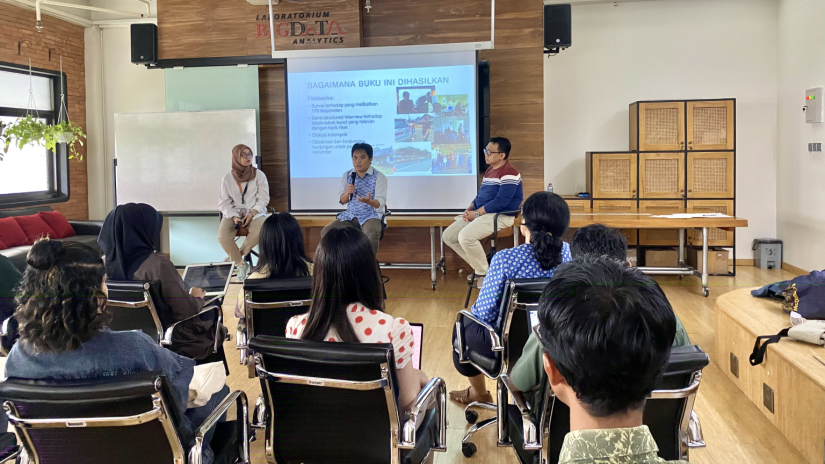
Yogyakarta, March 22nd 2024─Research Center of Politics and Government (PolGov) in collaboration with Obor Publishers and the Indonesia Initiative for Sustainable Mining (IISM) held a book discussion entitled “The Second Chance” on Friday (22/3) in the Big Data Lab Room (BA 401), BA Building Fl. 4, Fisipol, UGM. This event was attended by the book author, Rezki Syahrir Ph.D, lecturer from the Department of Politics and Government, Faculty of Social and Political Sciences UGM, Hasrul Hanif, Ph.D, as responder and moderated by PolGov researcher, Fitria Yuniarti. This discussion also invited researchers, experts, lecturers and students as a space for exchanging ideas and discussing issues regarding mining governance in Indonesia.
The book The Second Chance was written by Rezki Syahrir who was inspired by his dissertation at the University of Exeter, England. He is the director of IISM and an alumnus of Government Science, Faculty of Social and Political Sciences, UGM 2001. Through the book discussed at this event, Rezki explains resource management practices and issues surrounding resources in Indonesia. Rezki explores the argument that mineral wealth, both national and sub-national, gives rise to two derivatives in the form of threats and opportunities for a country. The author also introduces the idiom of the paradox of the mineral wealth contribution, the contradiction faced when a country continues to increase its contribution to mineral wealth but turns into excessive dependence which threatens sustainable development. The concept of “sustainability resource governance” or sustainable resource governance was introduced by the author as a condition and effort to escape the trap of contributing to mineral wealth in Indonesia.
Apart from exploring the study field of tin mining (Pulau) Singkep, which has been explored since the mid-19th century; The discussion also looked at the five main contemporary national mining areas (Muara Enim, Kutai, Kolaka, East Luwu; and Mimika Papua), to examples of “failure” in the management of several mines abroad. The book discussion was further enriched by research and analysis from DPP Lecturer, Hasrul Hanif regarding politics and governance of resources and the environment. This discussion supports the Sustainable Development Goals (SDGs) point 9 regarding industry, innovation and infrastructure, point 11 regarding sustainable cities and communities, and point 17, namely partnerships for the goals. In the future, it is hoped that this discussion can expand the idea of sustainable natural resource management.
